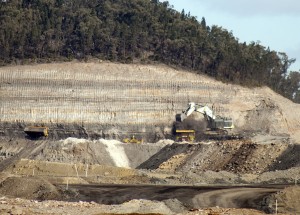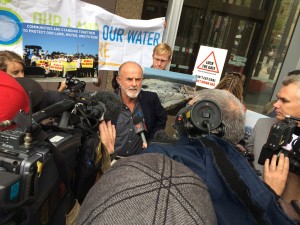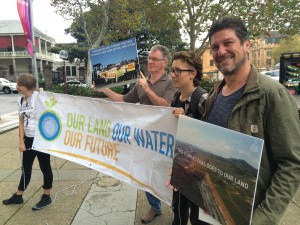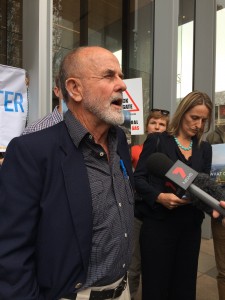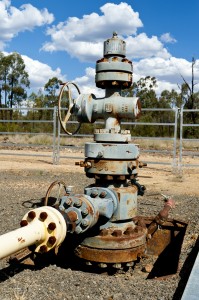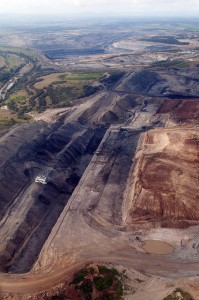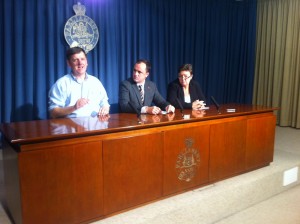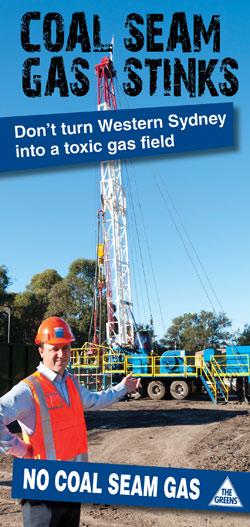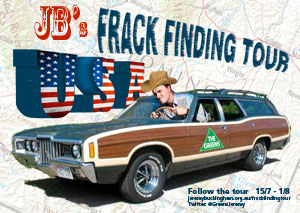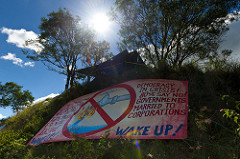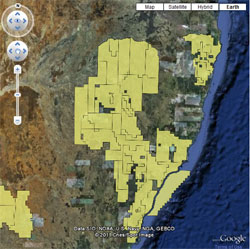Keeping public lands in public hands: Crown Lands Amendment (Multiple Land Use) Bill 2013
The Government introduced a bill in September 2013 to change the way Crown reserves (including travelling stock routes) are managed in NSW. Read the Minister’s second reading speech here.
This has ostensibly been done to address the Goomallee court case which found that a grazing licence granted over a parcel of Crown land reserved for the purpose of “public recreation” was unlawful, and as the licence was not for the same purpose as the reserve or “in furtherance of or incidental to” the purpose of the reserve, it invalidated the secondary purpose.
This Bill has severe implications for how Crown reserves are used in NSW, and the Greens have strong concerns about the transparency, probity and necessity for the Bill.
The Government did have to respond to the Goomallee decision in some form. However, the Bill is excessive and over-reaching in its methods to address the widespread invalidation of grazing leases after Goomallee. Fundamentally, the Bill vests significant executive discretion in the Minister to manage crown reserves without sufficient public oversight.
Read the letter from the Law Society regarding the Bill, and Jeremy and Jan’s letter responding to the Bill.
Background
Crown reserves are crown lands set aside on behalf of the community for a wide range of public purposes including environmental and heritage protection, recreation and sport, open space, community halls and special events. The Crown Lands Acts sets out public consultation and notification processes for reservation of land as a crown land reserve.
The Minister has power to reserve Crown land for public purposes in accordance with Part 5, Division 3 of the Crown Lands Act 1989.
Approximately 35,000 Crown reserves in NSW, which is approximately 4% of the land area of the State. TSRs cover approximately 500,000 hectares, which is approximately 6% of the State. Crown land itself is about 42% of the State, which includes national parks, State forests, schools, hospitals, sporting fields and conservation areas.
Leases, licences, permits et cetera can be granted over these reserves by the Crown Lands Division (the Minister) or by reserve trusts, pursuant to s 34A of Crown Lands Act 1989. Since amendments to the Crown Lands Act in 2005, the Minister can authorise a reserve to be used for additional purposes, other than the declared purpose, so long as the additional purpose is compatible with the reserved purpose, consistent with principles of Crown land management, and is in the public interest (s 121A).
In the 2012 court case of Goomallee, the court found that a grazing licence granted over a parcel of Crown land reserved for the purpose of “public recreation” was unlawful, and as the licence was not for the same purpose as the reserve or “in furtherance of or incidental to” the purpose of the reserve, it invalidated the secondary purpose. This therefore meant the land in question was ‘claimable Crown land’ for the purposes of the Aboriginal Land Rights Act 1983.
What the Bill does
Amends the Crown Lands Act 1989 so that existing and future secondary tenures over Crown reserves (including travelling stock routes) are valid, provided they are not causing or likely to cause ‘material harm’ to the primary purpose of the reserve.
Bill’s purpose is to validate secondary tenures on crown reserves, many of which may be invalid for a range of reasons including incompatibility of purpose, non-existent leases or administrative/procedural errors.
Concerns with the Bill
Inadequate consultation with affected stakeholders or publicising of the Bill, particularly the NSW Aboriginal Land Council, a key stakeholder affected by this Bill. The Bill has been introduced before the Crown lands & Aboriginal Lands Right Review have been completed.
‘Material harm’ test used in the Bill is undefined and sets a low threshold which will severely limit the protection afforded by the existing ‘further/ancillary to’ test, or even the ‘inconsistency’ test. The ‘material harm’ test is completely new, and is not reflected in case law regarding Crown law reserves. Interpretation of material harm is left entirely to the discretion of the Minister. The public interest test which currently exists in the Crown Lands Act 1989 is being overridden by this subjective test which requires no gazettal or public oversight.
Dispute resolution - There is no dispute resolution procedure as referred to in the Minister’s 2nd reading speech
Retrospectivity - Existing tenures will be subject to a blanket retrospective validation. Appropriate safeguards need to be implemented in order to determine tenures that are likely to cause material harm, before they are validated carte blanche.
Puts unnecessary limits on judicial process - The requirement in the proposed s 35A that a party gives 6 months’ notice before challenging the validity of an interest in Court proceedings is an unacceptable and invasive fettering of the judicial process. This provision should be removed and replaced with the dispute resolution provision referred to in the 2nd reading speech.
Crown Lands Act already provides for multiple purposes – The Crown Lands Act already provides for multiple Crown land purposes. Multiple uses of land is allowed as long as it is not in conflict in terms of purpose. Section 121A explicitly provides that the Minister may authorise a reserve to be used for an additional purpose, so long as it is compatible with the declared purpose, consistent with the principles of Crown land management and is in the public interest. Rather than following the Act’s provisions, the Bill introduces a loophole which defeats the purpose of publicly gazetting Crown lands.
Scaremongering – Claims about the Goomallee decision throwing doubt on a number of secondary Crown reserves are inappropriately being used to scare the public about the implications of Goomallee. The Deputy Premier has claimed that CWA halls, Meals on Wheels kitchens, men’s sheds, preschools, libraries, council chambers, community centres, and other public assets are at risk since the judgement in Goomallee. In most instances this is incorrect. These organisations have purposes which are clearly consistent with reservation for ‘future public purposes’.
Impact on Aboriginal land rights claims – This Bill makes unjustified inroads into nullifying potential Aboriginal Land Rights claims without proper consultation with Aboriginal stakeholders, or a thorough analysis of the impacts it will have on current and future land claims.
Government is asking parliament to absolve wrongdoing – This Bill is seeking to absolve the mistake of Crown lands for the incorrect and unlawful issuing of secondary interests over Crown reserves for purposes which the declared purpose does not allow.
What stakeholders want
- Full and transparent consultation with all stakeholders
- Delay the Bill until the Crown Lands Review and Aboriginal Land Rights review are completed or reduce the scope of the Bill to only deal with grazing licences.
- Undertake and make public an audit of the Crown lands and Aboriginal land claims that will be affected by the Bill
- Remove the retrospectivity aspects of the Bill, and instead make it operate from the date of assent.
- Provide a dispute resolution process that involves relevant stakeholders where there are challenges to the validity of an interest in crown reserves.
- Adequately define ‘material harm’ and provide objective requirements by which it can be measured.
- Introduce a sunset clause, to enable Crown Lands to get its ‘house in order’ before reverting back to the existing framework.
- Establish a public register of the secondary interests that are validated by the Bill for the purposes of transparency and probity.
Resources & Media
Land and Property Management Authority information sheet
http://www.smh.com.au/federal-politics/political-news/parks-beaches-face-threat-from-new-bill-opponents-say-20131023-2w1sk.html
http://www.dailytelegraph.com.au/news/nsw/nsw-premier-barry-ofarrell-wants-more-control-over-crown-land/story-fni0cx12-1226745729146
http://www.dailytelegraph.com.au/news/breaking-news/nsw-govt-accused-of-crown-land-grab/story-fni0xqi3-1226741156993



